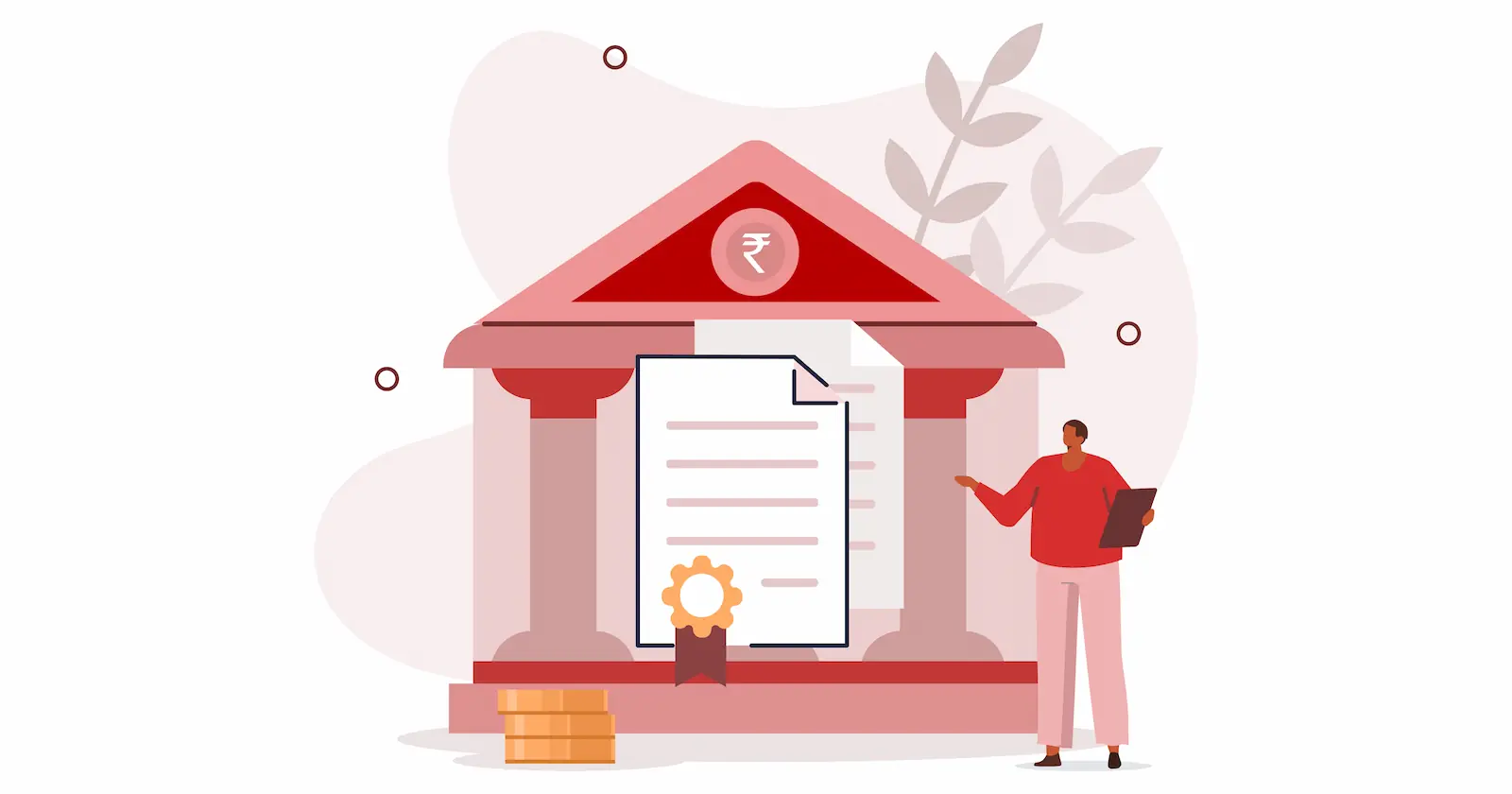What is Capital Gains Tax?
Section 45 of income tax act, 1961 provides that any profits or gains arising from the transfer of a capital asset effected in the previous year will be chargeable to income-tax under the head 'Capital Gains'. Such capital gains will be deemed to be the income of the previous year in which the transfer took place.
What are Capital Assets?
A capital asset is any tangible or intangible property that is purchased as an investment for the long term. Capital Assets serve as the basis for the calculation of capital gains. According to the Income Tax Act, you can include the following under capital assets.
What is Included?
- Property: This is a wide head and includes both tangible as well as intangible properties. Tangible properties can be
- Land
- Building
- Machine
- Whereas intangible properties can include intellectual property. For example:
- Patent
- Trademark
- Lease rights
- Securities: The securities that are held by FII’s under the rules of SEBI can also be called a capital assets.
Which “assets” are not included?
Despite being referred to as assets, the following are not considered capital assets:
- A business's or a profession's stock in trade, as well as any basic materials needed in business.
- Personal items used on a daily basis, such as clothing, shoes, kitchenware, etc.
- Home furnishings that can be moved, a personal automobile, etc. Jewelry, archaeological collection, drawings, paintings, sculptures and any work of art are not included and are capital assets.
- Additionally, agricultural land located in India's rural areas is not taken into account.
According to the Income Tax Act of 1961, the gain on a capital asset can be divided into two categories based on how long you owned the asset for. These categories include short-term capital gains and long-term capital gains.
What are long term and short term capital gains?
Capital gains are categorized as short-term and long-term capital gains. The duration for which the asset is held determines whether it is a long-term asset or a short-term asset.
For some notified assets such as equity and debentures, a holding period of 12 months qualifies them as long-term capital assets. For immovable assets like land or house, the holding period to qualify as long-term is 24 months.
| Assets | LTCA | STCA |
|---|---|---|
|
If hold for > 12 months |
If hold for ≤ 12 months |
|
If held for > 24 months |
If held for ≤ 24 months |
|
If held for > 36 months |
If held for ≤ 36 months |
Tax Rates - Long-Term Capital Gains and Short-Term Capital Gains
According to type of asset and the holding period, different tax rates apply to long- and short-term capital gains. This table shows the rates of these taxes.
| Nature of Tax | Condition | Tax applicable |
|---|---|---|
|
Long-term capital gains tax |
If you sell Equity shares/ or the units of equity-based mutual funds |
10% over and above Rs 1 lakh without the benefit of Indexation. |
|
If you sell any capital assets other than items listed above |
20% |
|
|
Short-term capital gains Tax |
The securities transaction tax is not applicable |
Added to your tax liability and you will pay tax as per the slab you fall in. |
|
The securities transaction tax is applicable |
15% |
Saving Tax on Capital Gains
Tax Exemptions in Case of Long Term Capital Gains :
- Section 10(37) - Exemption of capital gains on compulsory acquisition of agricultural land situated within specified urban limits
With a view to mitigate the hardship faced by the farmers whose agricultural land situated in specified urban limits has been compulsorily acquired, clause (37) of section 10 exempts the capital gains arising to an individual or a HUF from transfer of agricultural land by way of compulsory acquisition.
Such exemption is available where the compensation or the enhanced compensation or consideration, as the case may be, is received on or after 1.4.2004.
The exemption is available only when such land has been used for agricultural purposes during the preceding two years immediately preceding the date of transfer by such individual or a parent of his or by such HUF.
- Section 54 - Investing in another House Property to Get Exemption on Capital Gains arising on sale of Existing House Property
Consider a situation where a person has decided to relocate or shift to some other location and therefore, he/she sold his old home and bought a new house with the sale proceeds. The prima facie intention of the person in this case was shifting to some other location/house. It would be a hardship for the person if he had to pay income tax on capital gains arising from the sale of the old house. Section 54 provides relief from such hardship.
Following conditions should be satisfied to claim the benefit of section 54:-
- The benefit of section 54 is available only to an individual or HUF.
- The asset transferred should be a long-term capital asset, being a residential house property.
- Within a period of one year before or two years after the date of transfer of old house, the taxpayer should acquire another residential house or should construct a residential house within a period of three years from the date of transfer of the old house. In case of compulsory acquisition, the period of acquisition or construction will be determined from the date of receipt of compensation.
Quantum of Deduction:-
If the Capital Gains amount is equal to or less than the cost of the new house, then the entire capital gain shall be exempt
If the amount of Capital Gain is greater than the cost of the new house, then the cost of the new house shall be allowed as an exemption.
No. of Houses which can be purchased for claiming Section 54 Exemption:
Earlier the Capital Gains Exemption is allowed only if the Capital Gains exemption is invested in construction/purchase of 1 residential house. This amendment is welcomed by the taxpayers as it will help in tax savings. Irrespective of the no. of houses already owned by the person, if he invests the capital gain in construction/purchase of a single residential house – then capital gains exemption can be claimed.
As an exception to the above rule and with the amendment made by Finance Act, 2019, in cases where the amount of Capital Gains does not exceed Rs. 2 Crores, the capital gains exemption would be allowed even if the investment is made in purchase/construction of 2 residential houses. However, this exemption of purchasing 2 residential houses can be claimed only once. This exemption once claimed cannot be claimed in again in any other year. For all other years, investment should be made in construction/ purchase of 1 residential house only.
- Section 54F: Exemption on Capital Gains on Sale of Any Asset Other than a House Property
As per the Income Tax Act's Section 54F, exemption of capital gain is made available in the situation of transfer of long term capital assets other than residential house property, against the investment one makes in a residential house. Some of the features to avail exemptions u/s 54F are mentioned below:
The exemptions u/s 54F is for Hindu Undivided Families and individuals.
In case of purchase the time limit is within 1 year before or 2 years after the date of transfer of asset and in case of construction its within 3 years after the date of such transfer.
Quantum of Deduction:-
If the net consideration is equal to or less than the cost of the new house, then the entire capital gain shall be exempt
If the net consideration is greater than the cost of the new house, then exemption will be calculated as below :Exemption Amount = (Capital Gains * Amount Invested) / Net Sales Consideration
- Investing in a Capital Gain Account Scheme
A new property can be a challenging and time-consuming process, from finding a seller and arranging the necessary funds to getting the paperwork in place. Fortunately, the Income Tax Department is sensitive to these limitations.
Capital Gains Account Scheme (CGAS) allows individuals to safeguard their long-term capital gains until they are able to invest it as specified in Sections 54 and 54F. In CGAS scheme a taxpayer can claim exemption and save taxes by opening “Capital Gain Account” in any of the authorized bank branches as specified therein and investing the capital gain in such “Capital Gain Account”
However, investing in house properties is the only way to withdraw funds from this account. Capital gains are taxable if they are withdrawn for any other purpose or not used within 3 years.
- Section 54EC: Exemption on the sale of a house if it is reinvested in a certain bond
Gains arising from the transfer of any long term capital asset being land or building or both are exempt under section 54EC if the assessee has within a period of 6 months after the due date of such transfer invested the capital gain in long term specified bonds as notified by the Govt. for a minimum period of 5 year.
Conditions to be fulfilled :
- Such asset can also be a depreciable asset (in this case, building) held for more than 24 months.
- The capital gains arising from such transfer should be invested in a long-term specified asset within 6 months from the date of transfer.
- Long-term specified asset means specified bonds, redeemable after 5 years, issued on or after 1.4.2018 by the National Highways Authority of India (NHAI) or the Rural Electrification Corporation Limited (RECL) or any other bond notified by the Central Government in this behalf [Bonds of Power Finance Corporation (PFC) and Indian Railways Finance Corporation (IRFC)].
- Amount invested can not exceed 50 lakhs.
- Section 54B - Capital Gains Exemption from Transfer of Land Used for Agriculture
Exemption is available under Section 54B to an individual or HUF making long-term or short-term capital gains from the sale of land used for agricultural purposes which was used for agricultural purpose for 2 years immediately prior to transfer. The exempted amount is either the capital gain or investment in a new asset, whichever is less. A new farmland must be acquired within two years of the date of transfer.
In order to qualify for capital gains exemption, agricultural land purchased for this purpose should not be sold within 3 years of its purchase. In the event that you are not able to purchase agricultural land before the due date for filing your income tax return, the amount of capital gains needs to be deposited in a deposit account in a branch (except rural branches) of a public sector bank or IDBI Bank before the due date for filing your return as per the Capital Gains Account Scheme, 1988.
It is possible to claim an exemption for the amount deposited. Unless the amount deposited under the Capital Gains Account Scheme was used to purchase agricultural land, it will be treated as capital gains in the year in which the period of 2 years from the date of sale of land ends.
- LTCG and ULIPs
Most of the people seek life insurance along with wise wealth management, that’s where ULIP stands out. If you invest with ULIP, you get a life cover along with wealth creation. In this investment scheme, a portion of your investment is either invested in a fund which is either debt or equity or both. ULIP uses the balance amount by providing life insurance cover. There is a lock-in period of 5 years in this investment. During this lock-in period, ULIP only allows you to switch between equity and debt based on their perception of risk appetite and market performance.
One thing that differentiates ULIP from other long-term investments is that the premium paid towards ULIP is eligible for a tax deduction under section 80C.
Earlier any gains made on ULIPs were completely tax free, however, after the Budget 2021 proposal the maturity amount remains tax free only if the aggregate annual premium is up to Rs 2.5 lakh a year. If the annual premium goes above Rs 2.5 lakh then one has to pay capital gains tax on any income earned on it.
- Section 54D - Capital Gains on transfer by way of compulsory acquisition of land and building of an industrial undertaking
Eligible assessee – Any assessee
Conditions to be fulfilled
- There must be compulsory acquisition of land and building or any right in land or building forming part of an industrial
- The land and building should have been used by the assessee for purposes of the business of the industrial undertaking in the 2 years immediately preceding the date of
- The assessee must purchase any other land or building or construct any building (for shifting or re-establishing the existing undertaking or setting up a new industrial undertaking) within 3 years from the date of receipt of the compensation.
- If such investment is not made before the date of filing of return of income, then the capital gain has to be deposited under the Amount utilized by the assessee for purchase of new asset and the amount so deposited shall be deemed to be the cost of new asset.
Quantum of exemption
- If cost of new asset ≥ Capital gains, entire capital gains is
- If cost of new asset < Capital gains, capital gains to the extent of cost of new asset is
Tax Exemptions in Case of Short Term Capital Gains
The person can take advantage of the basic exemption cap of the income tax slabs for short-term capital gains.
Therefore, the following individuals are eligible to benefit from the basic exemption limit.
- Indian Residents (Below 60 years) – If the profit (or total taxable income) does not exceed Rs. 2,50,000, there would be no income tax due on the short-term capital gain on the sale of the property.
- Senior Citizens (Age 60 – 80 years) – If the profit (or total taxable income) remains below Rs. 3,00,000, the short-term capital gain on the sale of the property would not be subject to income tax.
- Super Senior Citizens (Older than 80 years) – If the profit (or total taxable income) remains below Rs. 5,00,000, the short-term capital gain on the sale of the property would not be subject to income tax.
- Hindu Undivided Family (HUF) – If the profit (or total taxable income) does not exceed Rs. 2,50,000, the short-term capital gain on the sale of the property is not subject to income tax.
- Non-residential Indians – If the profit (or total taxable income) does not exceed Rs. 2,50,000, the short-term capital gain on the sale of the property is not subject to income tax.
Thus, as previously stated, the only benefit of an exemption from short-term capital gain is an unutilized basic exemption limit.





Comments
K